Remembering the Vulnerable
The Potter’s House has not met together for worship in our building for four weeks. Like most churches in the USA, we have moved online to preach and meet in small groups. But another part of our mission cannot take place on Facebook or Zoom. A thumbs up or an emoji, no matter how heartfelt, cannot fill a stomach or put clothes on someone’s back.
We count it a privilege to serve a community made up largely of undocumented immigrants. A broad swath of the population of Providence, Rhode Island, has no access to public benefits and when most of us sighed with relief at the passage of the CARES Act, many of our people sighed in different manner. It had more of a pleading quality — “God help us.”
A non-profit organization in Rhode Island, led by our very own Evy Rodriguez, mobilized as soon as the social distancing rules began taking effect. Evy is a human earthquake, because she shakes things up wherever she goes. She has pulled me into meetings with the governor’s and mayor’s staffs and with state representatives. A few times, she made me go on TV with her.
The first week of social distancing, we served 25 families with groceries out of her house. Evy rounded up donations from local restaurants and stores. Then, as more people have lost their jobs and contracted the virus, calls have come in for more food deliveries. This week we served 200 families with groceries and basic needs items. Now, several churches come to us for food they can deliver to their people.
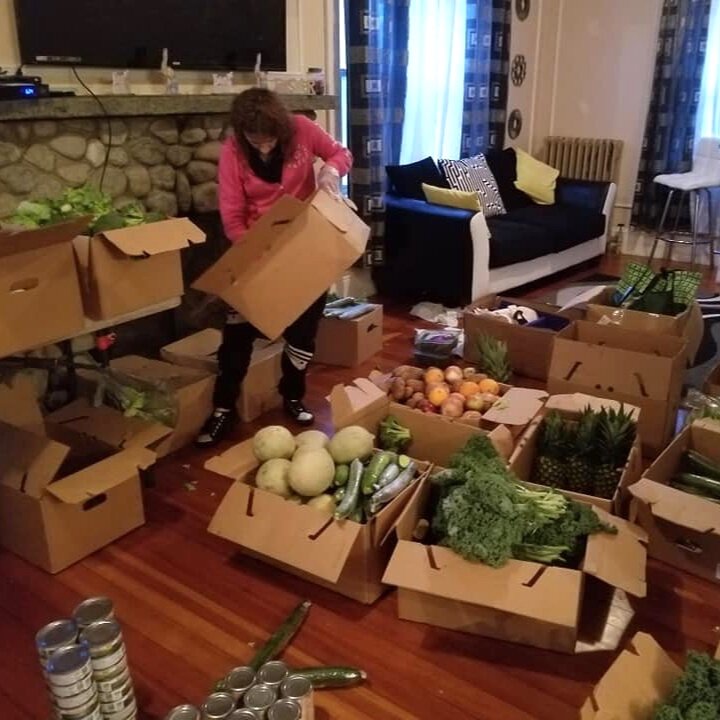
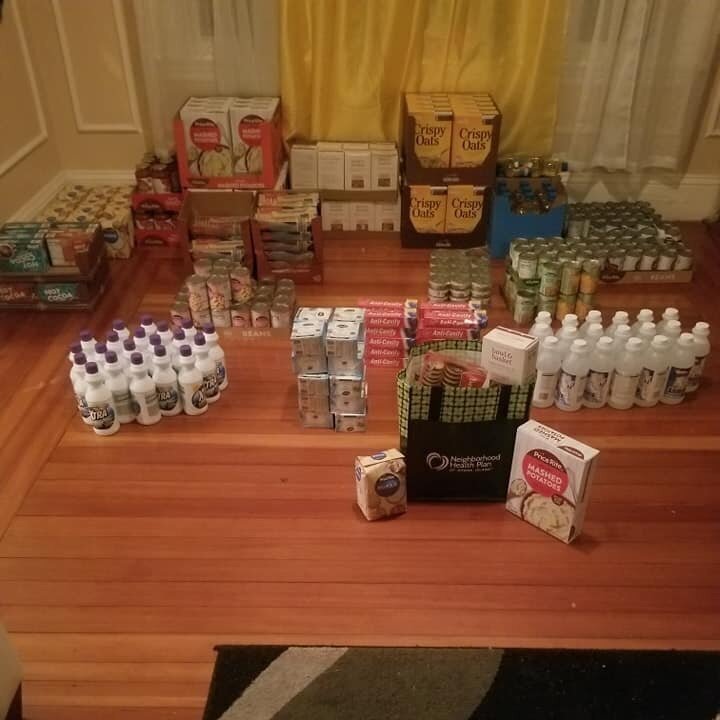
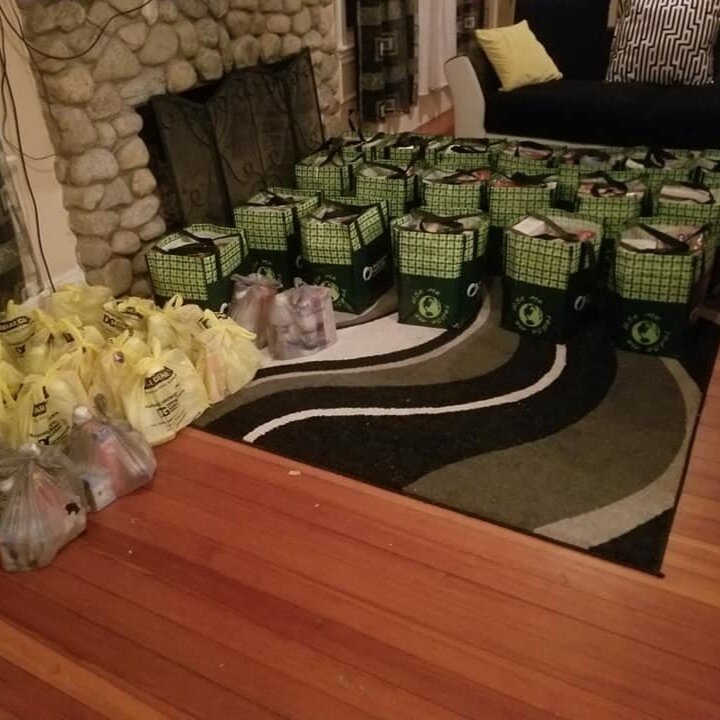
On my first run, I pulled up to an apartment building and rang the bell. After several minutes, an elderly woman from the Dominican Republic appeared at the door. She used her cane to push it open and I used my elbow to pry it wider. She stepped back several feet in fear of getting too close. Then I saw the look on her face—she was terrified. Another couple of older residents peeked out of their doors and I realized this whole building housed the elderly. I dropped off extra food and asked her to share what she couldn’t use with everyone else. The woman actually thanked me for, in her words, “risking my life to bring her food.”
As I drove away, it hit me. I had to pull over to the side of the road and wait for the tears to stop. I had been comfortable at home with my kids for days. I had people checking in on me, calling and texting and video chatting. We had a refrigerator full of food and enough toilet paper to last the week. No one in my home is in the vulnerable category. But a whole section of people in my city have no one checking in on them. No one brings them food, no one asks if they feel okay. They have no safety net. As this crisis continues, they have the opportunity to experience total dependence on God.
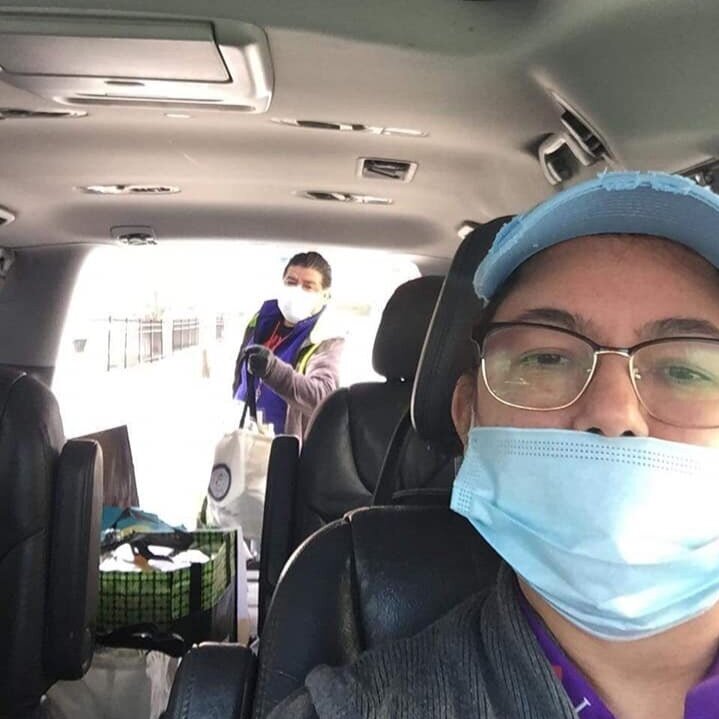
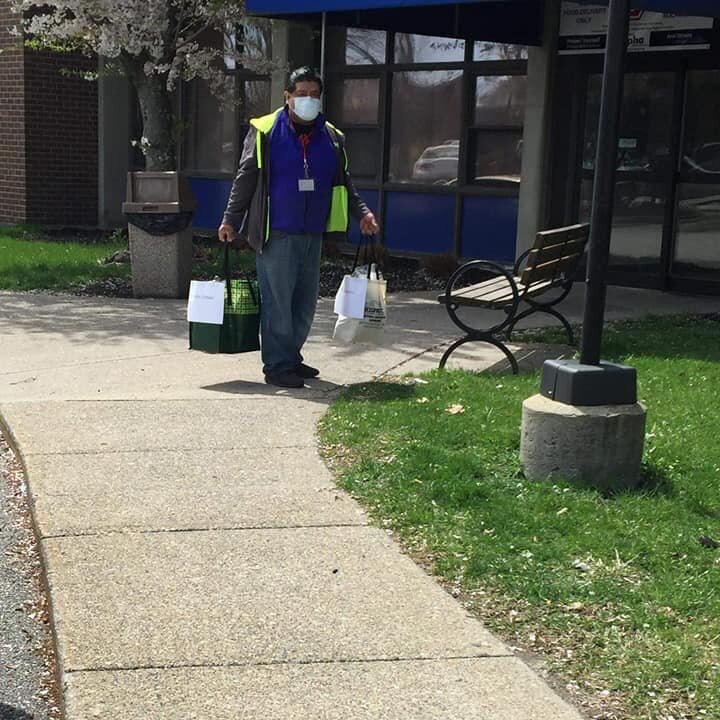
We have the opportunity to see and feel the needs of the people on the margins of society like never before. They need a church with a heart to reach out physically, as well as online. For example, our elders, who both lost their jobs this month, have been sourcing food and delivering it to families. Our members have stepped up to sort produce and household items into totes to drop off on porches. Our church has four households in quarantine, having tested positive for COVID-19. We can’t hug them, but we can love them with food and toothpaste and medicine and money for rent.
God has given us all the resources he wants us to have in order to do the things he wants us to do. We can’t see the need getting smaller in the coming weeks. But we have learned to expect that the provision of God will meet it in greater measure.
So far, we have supported 300 families through this effort. We anticipate the needs to continue growing the next few weeks, as the crisis continues to keep people home and out of work. If you would like to join us on our mission to feed our friends and neighbors, you can do so here.





